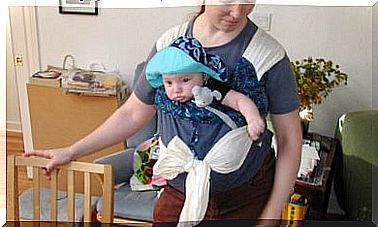I Am A Mother, I Am Not A Servant

“I am a mom”. What is the first thing that comes to your mind when you hear this sentence? Joy, satisfaction, happiness or rather sacrifice, despair, slavery?
Although the arrival of a child is probably the most important moment of our life, as well as the feeling most often expressed in words of happiness, it is known that it involves a problem that emerges at home with the big question: am I a mother, serve?
Who Should Take on the Burden of Household Chores? Does mom have to be my maid? Okay and is it right to “exempt” the children from all the work and help around the house, because they are too tired to do their part? And then there is the more important question: How will this view affect my child’s life as an adult?

I am a mother, I am not a servant
In most homes, especially in Western countries, there is a bad habit of accustoming children to receiving without giving anything in return, helping to create a huge problem in their adult life and making them believe, wrongly, that the mother is their personal servant.
We could think that it is only a question of education, thus minimizing the question, naively thinking that it will be solved as adults, without any obstacles. What is certain is that the first person to be clear about the concept of being a mother and there is no need must be the mother herself. But it must also be clear to your child: I am your mom, not your servant.
In retrospect, could all this affect our child’s growth? Will he come to adulthood with a distorted view of women? Would there be any positive effects if we got to work now? Undoubtedly it depends on the importance we give to the issue and on how willing we are to have a collaborative and mutually supportive environment at home.
I am a mother, not a servant: what to do when the problem arises?
The ideal after identifying the problem – and even before it arises – is to act without hesitation. In order for our goal to be realized and for our son not to grow up in the mistaken belief that we are the servants of the house and that the super mom does not need help from anyone, the first to get rid of this idea must be the mother.
Start by giving your child homework from an early age
Experts recommend starting at two years of age or even earlier. For example, children can pick up their toys, pick up what they have thrown on the floor from the floor or arrange their clothes in the bedroom.
Logically, they will need to be given tasks appropriate to their age, such as making the bed, making a washing machine or even cooking (in safe conditions). Always try to resist the urge to do their homework for them because they feel tired or because they don’t do things as we would like.

The goal to be achieved is not to ensure that the child does his homework as an adult, but to help him change in his mind the idea of the mother-servant who takes care of everything at home. They must understand from an early age the effort behind the tasks to be done and appreciate them. By doing so, they will become responsible adults.
Let the child understand the importance of helping others
It has been observed that when children are assigned housework, they become accustomed to putting the needs of others before their own, which will help make it more natural for them to help others, thus transforming themselves into selfless and responsible adults.
In this way we will be able to achieve the desired goal: to ensure that they have a more real view of adult life, and to avoid that he thinks that everyone is at his service and at his disposal, including his mother.
Therefore, if we want to be happy mothers and raise mature and responsible children, we must teach our children, from an early age, to see that not only mothers, but they also have their own responsibilities at home. This way you will not find yourself saying: I am your mom, not your servant.









